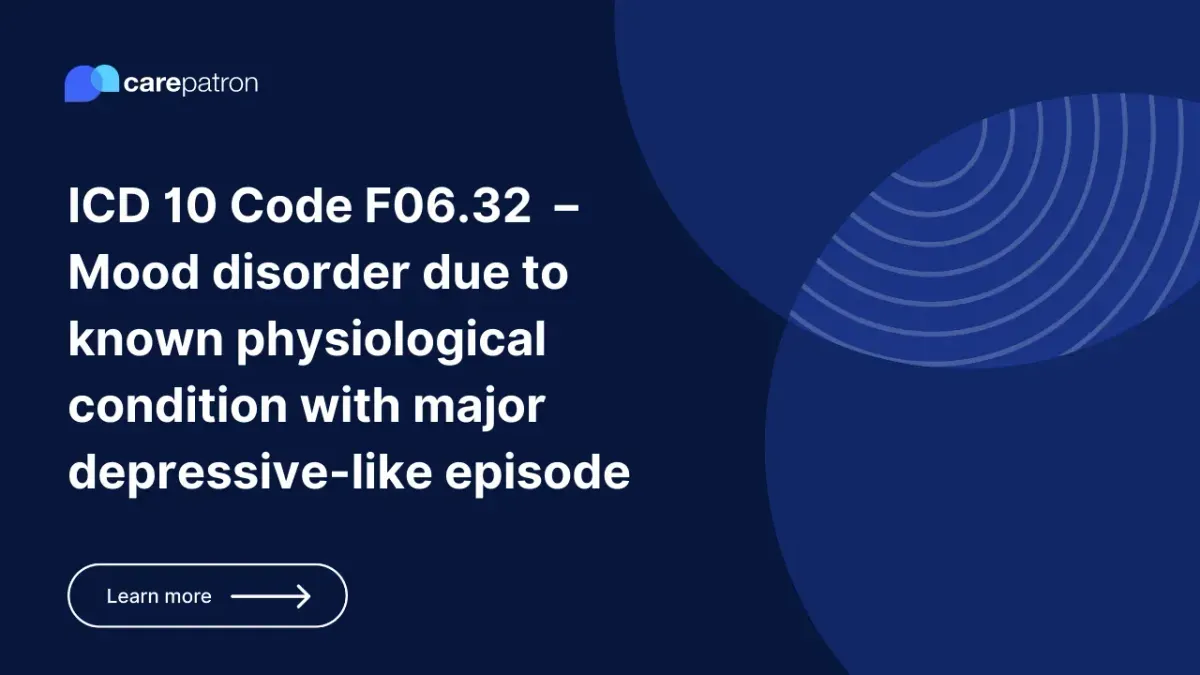
F06.32 – Mood disorder due to known physiological condition with major depressive-like episode
Read our short guide to learn more about the F06.32 code, whether it's billable, FAQs, and even related ICD-10 codes.
Use Code
Commonly asked questions
Yes, this ICD-10 code is billable.
You use it when your patient is confirmed to have a mood disorder that’s caused by a physiological condition that they have. This mood disorder has characteristics of a major depressive-like episode.
Treatment for this disorder includes medication for depression symptoms and talk-based therapy. Treating the physiological condition (if possible) will also contribute to treating the mood disorder.
EHR and practice management software
Get started for free
*No credit card required
Free
$0/usd
Unlimited clients
Telehealth
1GB of storage
Client portal text
Automated billing and online payments
